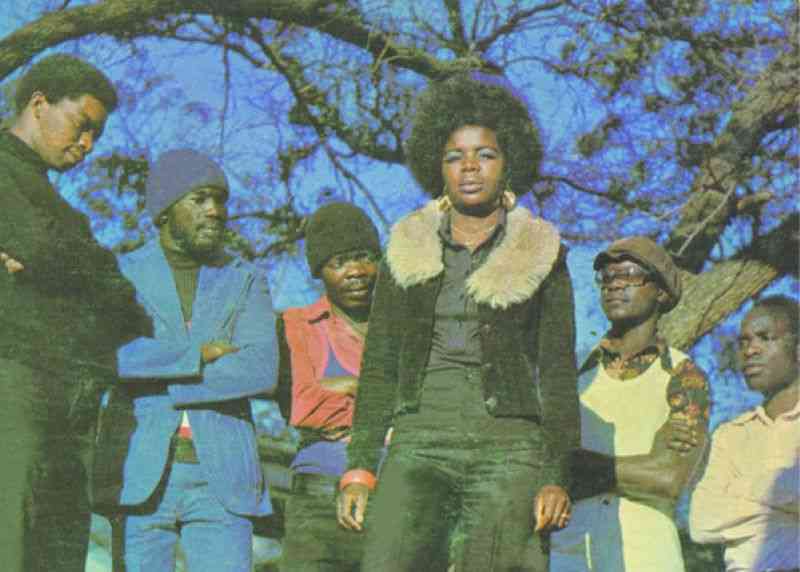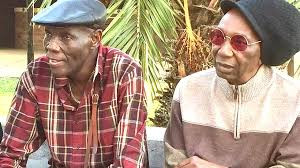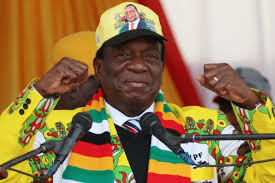
Where were you in 1975?
If you were born after Independence 1980, you probably wouldn’t know the pre-independence music group called Tutenkhamen or the New Tutenkhamen. You might have never heard of big names in the music industry of the 1970s who formed part of these amazing groups. These names include Jethro Shasha, Elisha Josamu, Chex Tawengwa, Carol Mhlanga and Herenimo Ruzivo. Unfortunately, these artistes are now gone, but they made a big impact on pre-independence Zimbabwe’s music scene in the 1970s.
Imagine you were living in Harare, Rhodesia in the 1970s. Your movement would be restricted to African Townships only because blacks were not allowed in urban city centres which were exclusively for white people. If you were in Harare and you were looking for places to go to listen to music, the only place you would opt for was Mushandira Pamwe Hotel in Highfield, which guaranteed musical entertainment every weekend. Yes, the same Mushandira Pamwe Hotel you see today.
The hotel was owned by George Tawengwa, Zimbabwe’s first black millionaire, who operated a fleet of buses of the same name.
Here, you would find the band Tutenkhamen playing and you would certainly enjoy their music at the popular hotel, which catered for black people, who weren’t allowed into the city centre.
It was at Mushandira Pamwe Hotel in Highfield, Harare that the band Tutenkhamen, which had originally operated under the same name at Mushandira Pamwe Hotel in Marondera became famous after churning out two hits which resonated well with township audiences, Itai Cent Cent and Torai Kapadza Muchirima. In itself, the song Itai Cent Cent is an embodiment of everything that was township music then. It tells a sad story of poverty and depravity when blacks were confined to poorly-built and overcrowded suburbs where murder, robberies, prostitution and all other social ills occurred unabated.
But how did the name Tutenkhamen band come about? This is the million-dollar question. I asked this question to the late Christopher Chakauya aka Chex Tawengwa and Herenimo Homo Ruzivo, the founding members of the band. They gave me the facts. “We got fascinated by Egyptian Kings’ history while still at school. So when the boys asked around what name we should give for our group, Tutenkhamen came up because we all aimed at becoming young kings in the music business of the time”. Other members of the original Tutenkhamen Band included Carol Mhlanga (Louis Mhlanga’s brother),Noah Mbirimi, Jimmy Kanyemba, Charles Chidavaenzi, Joseph and Godfrey. They all agreed to the name Tutenkhamen.
The facts, as seen by the members of the band are: In Egypt, King Tut (as King Tutankhamun was referred to) who was nicknamed the Boy King because he began his reign when he was only nine years old, was big news throughout the world. Tutankhamun (as his name was spelled in Egypt) died when he was only 18, and his body was mummified, which is how the ancient Egyptians preserved their dead. King Tut’s golden coffin was buried in a pyramid in the Valley Of Kings, surrounded by 5,000 priceless treasures which included gold, silver and diamonds.
- In The Groove: Do you remember Tutenkhamen
Keep Reading
“We were all fascinated by this Egyptian history, and we decided to name the band after King Tut,” remarked Chex.
The original Tutenkhamen band would play at Mushandirapamwe Hotel, in Marondera’s high-density Dombotombo suburb. The group then disbanded after moving to the new Mushandirapamwe location in Harare’s Highfield.
From 1975, Zimbabwe was abuzz with the name New Tutenkhamen, after the original band which was based in Marondera had split up with two of its original members Chex Tawengwa and Herenimo Homo Ruzivo the only members left. The band, which played an eclectic brand of Zimbabwean township music combining traditional rhythms and western influences rebranded itself as the New Tutenkhamen. This was the time of the Beatles, The Rolling Stones, Jimi Hendrix, Grand Funk Railroad, Michael Jackson, Bob Dylan, Aretha Franklyn and Tina Turner.
The band’s most famous release, Itai Cent Cent was so popular that after independence in 1980, it became the theme song for the Zimbabwe Broadcasting Corporation’s insurance programme which was hosted by Paul Mkondo.After the split, to distinguish it from the original Marondera-based Tutenkhamen band, which had now been disbanded, the band assumed the name New Tutenkhamen, and included some luminaries of Zimbabwean township music. (Elisha Josamu was an alumnus of the fabulously-named Hallelujah Chicken Run Band (alongside Thomas Mapfumo), and Green Jangano’s long-running Harare Mambos, and would later form his own band called Two Plus Two with bassist Christopher “Chex” Tawengwa. Jethro Shasha played the drums, and would arguably become the New Tutenkhamen’s most famous export, making continental waves working with the likes of Salif Keita.
Paul Sekerani played the rhythm guitar, with Amos Chatyoka on the organ, while the enigmatic Maggie Mbuli provided vocals and F. Manda played the saxophone.This New Tutenkhamen band went on to record the rock classic Joburg Bound at a time when many Harare youth were leaving the country, either for Mozambique to join the liberation war, or for South Africa to work in the mines.
“As New Tutenkamen, we recorded Jo’burg Bound which was composed by Elisha Josamu,’ uttered Chex Tawengwa. We also released an eight-track album, I Wish You Were Mine from which the single Mukadzi Wangu Akanyengwa naLuwizhi. (My wife had an extra marital affair with Luwizhi) is extracted.”
Later, Homo and Carol were to leave the band after a financial disagreement with the Mushandira Pamwe Hotel management. It was during this time that Moses Kabubi and a woman Maggie Mbuli joined the band.
The band now consisted of Amos Chatyoka on keyboards, Jethro Shasha on drums, Chex Tawengwa on bass, Elisha Josamu on lead guitar and vocals, Maggie Mbuli, another vocalist and F. Manda playing the saxophone. Paul Sekerani continued to play the rhythm guitar.
It was against this backdrop that New Tutenkhamen recorded I Wish You Were Mine at Teal Records, which was produced by Crispen Matema, a talented jazz drummer in his own right who had played drums on the all-time classic Skokiaan - a world famous song composed by August Musarurwa, and had backed Louis Armstrong on his 1960 Rhodesia visit.
Combining the heavyweight producing talents of Matema and the writing chops of Elisha Josamu, the New Tutenkhamen band created an album showcasing various musical styles popular at the time which included Afro-Jazz, Funk, Ska and Rock.
The New Tutenkhamen eventually moved from Mushandirapamwe Hotel to another club in Highfield called Saratoga, and then to the Kambuzuma Garden Party Hotel in a different township.
We all know that he who pays the piper, plays the tune. The management at Saratoga had been envious of the popularity of Tutenkhamen at Mushandira Pamwe which was situated in the same neighbourhood and thought of a way of luring the same crowd that the band attracted to their club. They soon offered them a better deal.
The liberation war was intensifying, and one story tells of a young schoolboy seeing the New Tutenkhamen band at the Kambuzuma Garden Party Hotel, the Friday night before taking the train to Mutare, from where he crossed the border over to Mozambique to join the liberation war.With intra-party fighting creating designated areas of political influence in the townships, patronage dwindled and the New Tutenkhamen’s shows were affected, with members gradually moving on.
”During that time, there were intra-party fighting and in the black suburbs political parties had designated their areas of influence. Patrons stopped coming and our shows were affected greatly. The members started leaving one by one”, said Chex.
Chex, one of the band’s founding members, had to find a job with the National Railways of Zimbabwe in Harare where he worked for four years into independence.
“After I had almost given up playing music as the New Tutenkhamen was no longer functional, Elisha Josamu approached me and said that we should form a band. I agreed and we started practising with a box guitar. When we were ready, I asked him what we should call the band and he said that since we were only two, we should find two others and then call the band 2plus2,” laughed Chex as he relived the moment.
Indeed an amazing story! Chex Tawengwa, Elisha Josamu, Jethro Shasha and the rest of the Tutenkhamen crew might be gone, but their legacy will forever thrive through the sweet melodies that they left us. If they had died in Egypt, they would be buried in Egyptian pyramids. May their dear souls rest in eternal peace.
- Feedback:[email protected]










